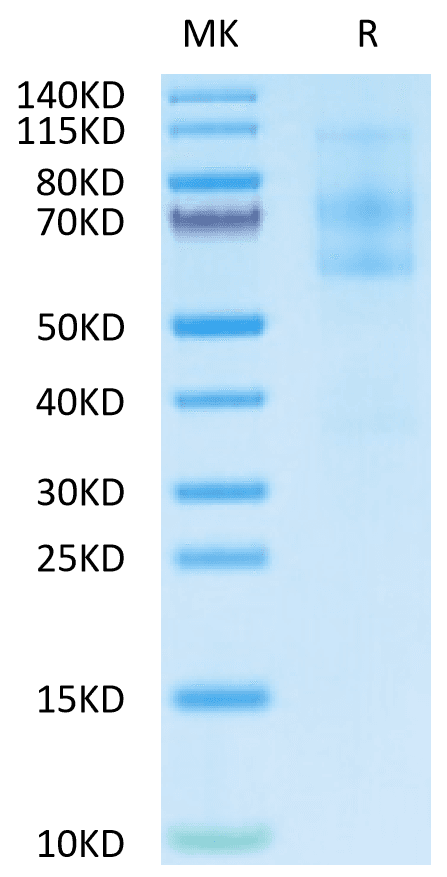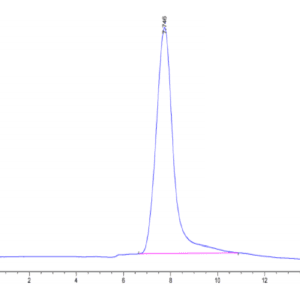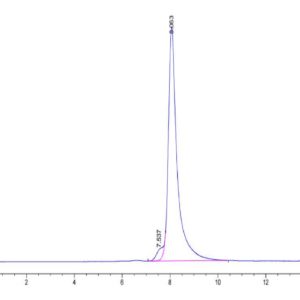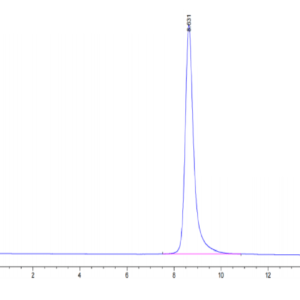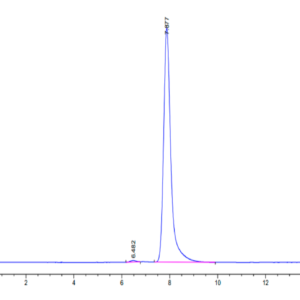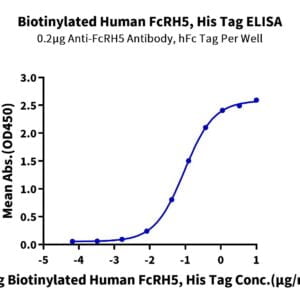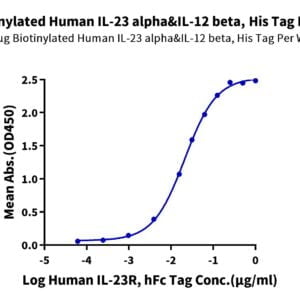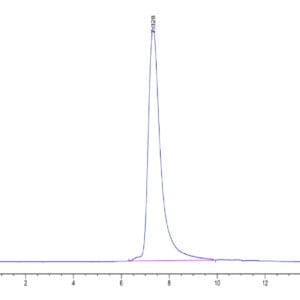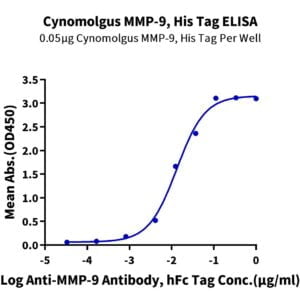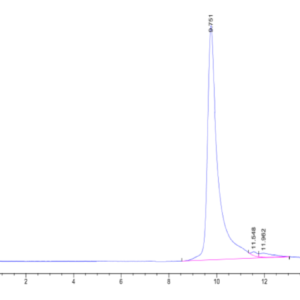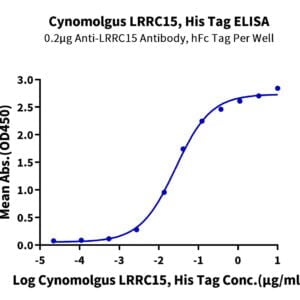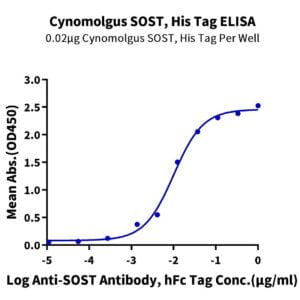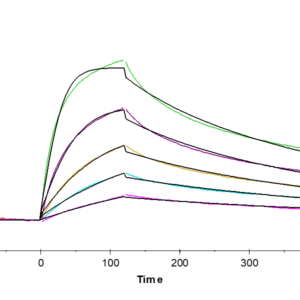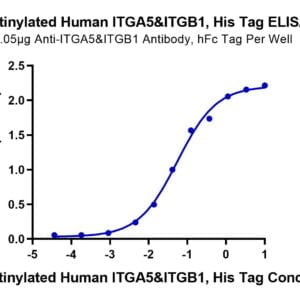| Weight | 1 lbs |
|---|---|
| Dimensions | 9 × 5 × 2 in |
| accession | Q8BPB5 |
| express system | HEK293 |
| product tag | N-His |
| purity | > 95% as determined by Tris-Bis PAGE |
| background | Transversalis fascia EFEMP1, TIMP3 and ELN expressions were decreased, but MMP9 expression was increased in IH patients compared with controls. In IH patients, EFEMP1 was not correlated with TIMP3, but positively correlated with ELN and negatively correlated with MMP9; TIMP3 negatively correlated with MMP9, but positively correlated with ELN.In addition, EFEMP1 suppressed L929 cell migration and invasion. |
| molecular weight | The protein has a predicted MW of 54.1 kDa. Due to glycosylation, the protein migrates to 60-80 kDa based on Tris-Bis PAGE result. |
| available size | 100 µg, 500 µg |
| endotoxin | Less than 1EU per μg by the LAL method. |
Mouse EFEMP1 Protein 3914
$315.00 – $1,050.00
Summary
- Expression: HEK293
- Pure: Yes (SDS-PAGE)
- Amino Acid Range: Gln18-Phe493
Mouse EFEMP1 Protein 3914
| protein |
|---|
| Size and concentration 100, 500µg and lyophilized |
| Form Lyophilized |
| Storage Instructions Valid for 12 months from date of receipt when stored at -80°C. Recommend to aliquot the protein into smaller quantities for optimal storage. Please minimize freeze-thaw cycles. |
| Storage buffer Shipped at ambient temperature. |
| Purity > 95% as determined by Tris-Bis PAGE |
| target relevance |
|---|
| Transversalis fascia EFEMP1, TIMP3 and ELN expressions were decreased, but MMP9 expression was increased in IH patients compared with controls. In IH patients, EFEMP1 was not correlated with TIMP3, but positively correlated with ELN and negatively correlated with MMP9; TIMP3 negatively correlated with MMP9, but positively correlated with ELN.In addition, EFEMP1 suppressed L929 cell migration and invasion. |
| Protein names EGF-containing fibulin-like extracellular matrix protein 1 (Fibulin-3) (FIBL-3) |
| Gene names Efemp1,Efemp1 Fbln3 |
| Protein family Fibulin family |
| Mass 10090Da |
| Function Binds EGFR, the EGF receptor, inducing EGFR autophosphorylation and the activation of downstream signaling pathways. May play a role in cell adhesion and migration. May function as a negative regulator of chondrocyte differentiation. In the olfactory epithelium, it may regulate glial cell migration, differentiation and the ability of glial cells to support neuronal neurite outgrowth (By similarity). |
| Subellular location Secreted, extracellular space. Secreted, extracellular space, extracellular matrix. Note=Localizes to the lamina propria underneath the olfactory epithelium. |
| Structure Interacts with ECM1. Interacts with TIMP3. |
| Target Relevance information above includes information from UniProt accession: Q8BPB5 |
| The UniProt Consortium |
Publications
Publications
| pmid | title | authors | citation |
|---|---|---|---|
| We haven't added any publications to our database yet. | |||
Protocols
| relevant to this product |
|---|
Documents
| # | ||
|---|---|---|
| Please enter your product and batch number here to retrieve product datasheet, SDS, and QC information. | ||
